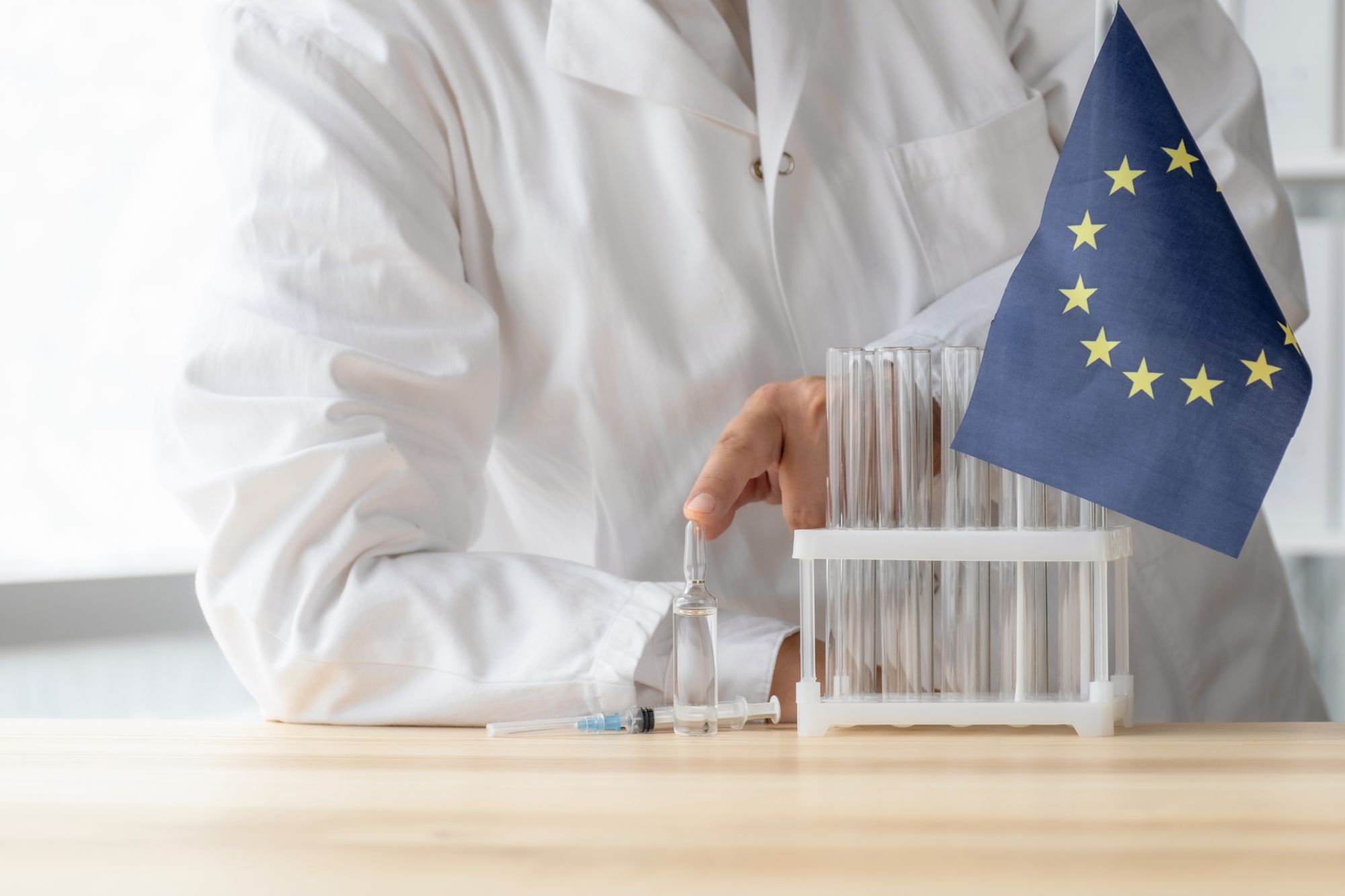The European pharmaceutical market is one of the largest and most complex in the world.
In order to meet the needs of patients, hospitals, and other healthcare providers, a robust and efficient supply chain is essential.
There are many different players involved in the pharmaceutical supply chain in Europe, from manufacturers to distributors to wholesalers.
Each has its role to play in ensuring that medications are delivered safely and effectively to those who need them.
Digital transformation and new technologies are having a major impact on the pharmaceutical supply chain in Europe.
From blockchain-based smart contracts to intelligent automation systems, business intelligence tools, data analytics, these tools are enabling faster, more efficient tracking and delivery of medicines.
At the same time, many challenges still remain. Regulations vary from country to country, while costs can be high due to inefficient processes and price setting.
Supply chain visibility is also a major issue, with accurate information often hard to come by.
Despite this, there is great potential for improvement in the European pharmaceutical supply chain and pharma industry in general.
By implementing best practices and leveraging new technologies, it will be possible to reduce costs, improve efficiency, and ensure that patients get access to the medications they need when they need them.
Overview of the Pharmaceutical Supply Chain in Europe
Pharmaceutical Supply Chain in Europe is a complex system composed of numerous stakeholders that provide the foundation for bringing medicines to the public.
Europe covers a myriad of distribution services and supply chain activities including source, procurement, planning and replenishment, inter-transportation, warehousing, order fulfillment, returns/refunds, market access and pricing.
The Pharmaceutical Supply Chains within Europe need to work efficiently to ensure the safe delivery of all pharmaceutical products from the manufacturer to authorized distributors, who then deliver it across drug stores and pharmacies.
Additionally, it helps in reducing costs associated with drug production and distribution while improving the overall quality and effectiveness of the drugs dispensed throughout Europe.
Pharmaceutical supply chain regulations are also heavily enforced on all levels in order to maintain safe and equitable supply chain practices leading up to maximum benefit for European citizens.
Role of Pharmaceutical Wholesalers in the European Union
Pharmaceutical wholesalers are critically important players for the supply chain in Europe, ensuring that pharmaceuticals reach their intended destination on time and intact.
Their role is multifaceted: it includes taking responsibility for the delivery of bulk or repackaged medicines from manufacturers to retail outlets, such as pharmacies, providing a buffer between retailers and suppliers, and minimizing the risk associated with distributing an increasingly large range of medicines across constantly changing markets.
Pharmaceutical wholesalers also help to alleviate pressure on the European regulatory environment by providing a platform for cost-effective stocking and distribution of medicinal products while guaranteeing that they are correctly labeled and well-documented.
In this way they serve as vital intermediaries between producers and end users, helping to keep the entire form chain functioning efficiently and effectively.
Pharmaceutical wholesaling is undoubtedly essential to the ongoing prosperity of the pharmaceutical industry in Europe.
Distribution and Delivery of Pharmaceutical Products in Europe
Pharmaceutical products are essential in providing treatments to the populace, and logistics play an incredibly important role in their distribution and delivery in Europe.
Pharmaceutical supply chain management is of utmost importance to ensure a timely and seamless transition from manufacturer to the patient; this requires modernized and efficient systems that track, coordinate and deliver critical goods.
Pharmaceutical companies must be cognizant of varying regulations across European nations when creating their distribution networks as these often have a significant impact on the speed of delivery time.
Additionally, it is beneficial for pharmaceutical businesses to invest in direct-to-consumer strategies, such as collaborating with retail outlets or harnessing the power of technology, within the region to better serve their customers.
Pharmaceutical supply chain systems must remain flexible in addressing challenges such as economic instability, political unrest, natural disasters, and more so that they can continue delivering crucial products effectively within the sensitive industry setting.
Key Players in the Pharmaceutical Supply Chain in Europe
Pharmaceutical Supply Chain in Europe is made up of a variety of components from manufacturer to consumer.
Main players in the pharmaceutical supply chain in Europe such as pharmaceutical companies, wholesaler distributors, healthcare providers, and retail pharmacies all play an important role in ensuring that medicines reach the right people at the right time.
The European Commission is also a key player within this sector, working to ensure compliance with regulations across the region while striving to improve patient access to necessary drugs through detailed legislation.
Ultimately, these players come together in order to maximize efficiency and promote public health throughout Europe.
Finally, it is crucial for everyone involved in the Pharmaceutical Supply Chain in Europe to remain aware of changing global trends and potential risks in order to keep up with increasing demands and protect both themselves and their customers from any harm.
With proper coordination between industry players and regulatory authorities, the future of pharmaceutical distribution throughout Europe looks to be bright.
Working in tandem with each other, they play an integral role in the development and distribution of quality medicines to those that need them.
Pharmaceutical companies are responsible for research and development as well as running clinical trials to ensure the safety and efficacy of pharmaceutical products before sale.
Wholesaler distributors connect the manufacturers with retail pharmacies who then provide medications directly to customers while hospitals also purchase them on behalf of their patients.
The Pharmaceutical Supply Chain in Europe has allowed for rapid response times when medical demands appear in communities; ensuring safe drugs reach where they are needed quickly and efficiently.
Challenges and Opportunities for the Future
The digital transformation of the world we live in is leading to an unprecedented number of new opportunities for businesses looking to expand.
One of those opportunities in particular concerns B2B pharmaceutical procurement tools, which are digital solutions that enable pharmaceutical companies to acquire their needed materials from suppliers more smoothly.
For example, with a digital procurement platform, buyers can connect with the right vendors and receive digital quotes much faster than through traditional procurement methods.
Ultimately, digital transformation creates both challenges and opportunities for all sectors, so leveraging digital tools such as these is essential to meeting the demands of our future economy.
One of the products in the market with advanced technology solutions in the pharmaceutical supply chain in Europe that will help pharmaceutical companies and pharmaceutical industry in Europe is Pharmafootpath.
Pharmafootpath is a B2B pharmaceutical procurement tool designed to help improve the complex process of global pharmaceutical purchasing.
This software as a service platform collects in-depth information from multiple countries, such as pricing and structure, then generates valuable insights to present to the procurement teams of pharma companies.
By having access to this data and streamlined processes, companies can save time and money while increasing efficiency. With these modernized processes, Pharmafootpath revolutionizes B2B pharmaceutical procurement for businesses everywhere.
Conclusion
The pharmaceutical supply chain in Europe is a complex but necessary network of entities to ensure the safety and availability of pharmaceuticals.
All parties involved in this process must be acutely aware of their roles and responsibilities to regulate, manage, and control pharmaceuticals according to best practices.
From the wholesaler and supply chain players who are ensuring that the pharmaceuticals get from point A to point B, to governmental regulators overseeing the entire process, all participants have an important part to play.
This article has provided insight into some of the complexities surrounding pharmaceutical supply chains in Europe, as well as cautions about risks that accompany them.
Ultimately, this serves as a reminder of how crucial it is for everyone involved in the pharmaceutical supply chain process in Europe to stay vigilant about working together for optimum results.
Following trends in digital transformation is crucial when we are speaking about pharmaceutical supply chain in Europe , and tools like Pharmafootpath are essential to meeting the demands of our future.
This B2B pharmaceutical procurement tool eases the process for buyers, saving time and money while increasing efficiency.
With modernized processes in place, all parties involved from manufacturers to customers can benefit from a more efficient supply chain that gets drugs to where they need to be quickly and safely.
In conclusion, it is of utmost importance for all stakeholders in the European Pharmaceutical Supply Chain to remain aware of their roles and responsibilities within this complex but necessary network.
By utilizing digital solutions such as Pharmafootpath, we can make sure that everyone benefits from an efficient, safe and cost-effective system.






